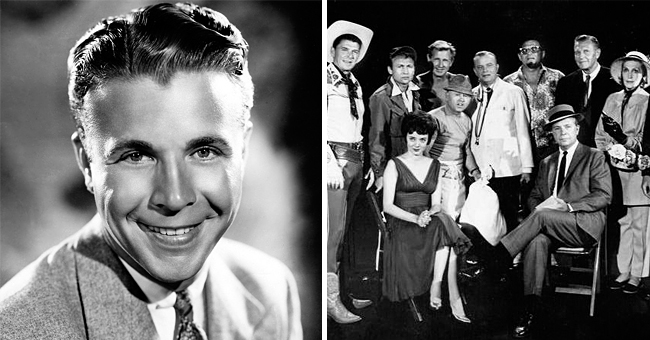
Final Years of Dick Powell
Dick Powell’s ability to reinvent himself made the television-movie giant a legend of Hollywood who died before his time.
“The Conqueror,” got filmed in 1954 among the red bluffs and white dunes close to Saint George, Utah. An area handpicked by the director/producer of the film, Dick Powell.
Due to its similarity to the central Asian steppes, Dick thought it the perfect place for the sappy love story between Genghis Khan and a captive princess to play out.
With reassurances from the federal government, no one knew that the atomic testing range only 137 miles away at Yucca Flat in Nevada posed a health hazard to those in Saint George.
With a cast and crew of over 220, an astonishing 91 developed cancer shortly after the movie got shot — one of those being Dick Powell.
When Dick went to St. John’s Hospital in Santa Monica on September 13, 1962, to get treated for what he thought to be an allergy, doctors discovered cancer in his neck and chest.
Seven days and several cobalt treatments later, Dick went home and returned to his studio a few days later to continue work on six television shows.
Dr. Jason Stein at the UCLA Medical Center treated Dick felt happy with his reaction to the treatment and reported a vast reduction in the size of the tumor. “Dr. Stein is pleased with my progress and told me he expects to eliminate the condition,” Dick said at the time.
A few months later Dick’s condition took a turn for the worst when he slipped into a coma on the cusp of 1963. On January 2, 1963, with his third wife, June Allyson by his side, Dick passed away during the early afternoon at the age of 58.
Even though Dick would no longer be around to build on his success, few other actors could reinvent themselves the way he did. Although one couldn’t tell by his voice, the Arkansas born Dick grew up in the Ozark Mountains.
His love for music, literature, and business surfaced while he attended college in Little Rock. He enjoyed starring in campus theatricals and married his first wife, Maude Maund briefly from 1925 until 1927.
By then, a traveling bandleader from Indiana had spotted Dick’s talents, and he joined the Charlie Davis Orchestra in 1927. Dick’s tenor voice quickly became a hit among mid-western dance-band enthusiasts, and so caught the attention of Warner Brothers.
The film studio bought over the Brunswick company during the early 1930s, the same company the Davis band had a recording contract with. The studio gave him a shot as an actor in the 1932 newspaper comedy, “Blessed Event,” wherein he even got to sing.
With a noteworthy performance in the comedy, he earned a significant role in the legendary musical “42nd Street.”
Dick’s onscreen presence and panache in the musical made him an instant star. His appearance in “Gold Diggers of 1933” in 1933 turned into a bigger hit, and so he became one of Warner Brother’s hottest commodities.
Over the next few years, Dick got cast in a string of musicals, but when he married Joan Blondell in 1936, and their child came along, Dick gave serious thought to his career.
The actor wanted a change in the type of roles he got cast in, and when that failed to happen, Dick decided to make a change altogether. He divorced Joan in July 1944 and continued singing on radio shows.
Soon the director, Edward Dymytrik noticed Dick and cast him as the private eye Philip Marlowe, perfectly suited to his aging features. As the new tough guy in town and the song-and-dance man in the rearview, Dick landed several raggedy roles after “Murder My Sweet.”
The actor married June Allyson on August 19, 1945, with whom he had two children, Dick Powell Jr., and Pamela. Close to the age of 50, Dick knew he had a limited time left as an actor.
He then teamed up with Charles Boyer, David Niven, and Joel McCrea, and created the production company Four Star Television. They anticipated the shifting of live productions in New York to filmed Hollywood programming and quickly became leaders in the industry.
As an actor, he appeared in three Best-Picture Oscar-nominated films that included “42nd Street,” “Flirtation Walk” in 1934, and “A Midsummer Night’s Dream” the following year.
A few years after Dick’s passing, another cast member on “The Conqueror” died from cancer. Before her death, Agnes Moorehead, also known as Endora from “Bewitched” claimed that she got the disease because of a movie role. In doing so, Agnes revealed the meaning behind her alleged last words.
